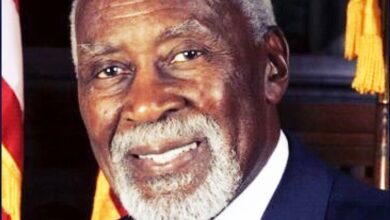
By McKenzie Jackson | California Black Media
California state government has launched a new public-facing platform that it hopes will facilitate communication and “build trust” between citizens and decision makers, providing a direct channel for people to discuss and influence policy.
The project, Engaged California – described as a “comprehensive hub” — is the result of collaboration between the California Office of Data and Innovation (ODI), the Government Operations Agency and the Carnegie Endowment for International Peace.
Announcing the effort last month, Gov. Newsom said the goal of the platform is “to hold Government accountable, to make sure your ideas are actionable and that we are responding in real time.”
The Newsom administration originally planned for Engaged California to be a collaboration with the California Health and Human Services Agency focused on the impact of social media on the mental health of California’s young people.
However, when the wildfires broke out in Los Angeles County in January, everything changed. The varied and pressing needs of families affected by the disaster that killed nearly 30 people, destroyed over 16,000 structures and displaced thousands of residents, became a more urgent priority.
Amy Tong, Government Operations Secretary Amy, said the wildfire survivors are still looking for answers and the platform will let the state collaborate with them in real time to solve problems.
“We have to think differently to bring us closer to those we serve, especially those whose voices we may be missing through traditional channels,” she stated.

Thanks to Engaged California. State residents impacted by the devastating wildfires that ravaged areas of Los Angeles for 24 days in January can now interact and lend ideas on the types of policies and actions the state government is taking in response to the firestorms.
“What this is designed to do is ensure the choices made for these communities are not made in a silo, they are not made in a backroom, they are not made without the input of the community themselves,” said ODI Director Jeffery Marino.
“It is a critical tool in enabling the community to see the recovery they want to see. We are hopeful it has an impact. We believe it will,” Marino added.
Conversations about how best to recover from the Eaton fire in the unincorporated community of Altadena and the Palisades blaze in the Pacific Palisades neighborhood of Los Angeles and eastern part of Malibu have already begun on Engaged California.
Since late February, 6,000 people have subscribed to Engaged California. On March 17, website enrollees were invited to help shape government services and create policy solutions by rating 10 topics on the state’s response to the wildfires on a five-point scale and sharing ideas in the topics’ comment sections.
The recovery topics include “Emergency planning & community safety,” “Financial & legal assistance,” “Wildfire prevention prioritization & accountability,” “Housing & rebuilding,” “Infrastructure & utilities restoration,” “Debris removal & environmental recovery,” “Emergency communications,” “Climate & community resilience,” “Economic recovery & small business support,” and “Emotional & mental health support.”
There were nearly 800 comments by March 26.
Under “Emotional & mental health support,” a user posted, “Two friends of mine lost EVERYTHING, and I have thought of them every single day since the fire. People need to process this, and they need all the help they can get.” Two other platform participants liked the comment.
Another of the topic’s comments read, “Our senior community, especially in Altadena, needs support navigating this disaster!” A user responded to the comment with, “I agree, there should be more support for our most vulnerable in our communities! Seniors, veterans, disabled, people with less than who were displaced/affected from any disaster including fires.”
The “Debris removal & environmental recovery” topic had 75 comments. One participant typed, “Toxins removal is very important for long-term community health. We need to understand what sort of toxic were produced by the fire and not be in such a rush to rebuild that we create long-term problems in the process.”
There is an additional comment section, titled “Anything else?” There, a commenter advocated for renters.
“I, along with so many others, have not received our security deposits back despite the 21-day law. It then becomes our responsibility to start, and pay for, a Small Claims case, and good luck collecting it. We are busy trying to find a place to live, filling out paperwork and dealing with insurance/FEMA, and trying to apply for grants that never seem to materialize. We need help.”
People who register to participate on the website receive an email with a temporary password. Once on the online tool, users see a civility pledge and the website’s moderation policy. On the next tab, participants are posed two questions: “What is your perspective on LA’s recovery?” and “What must be addressed first to ensure a successful recovery?”
Marino is encouraging all Californians to register on the platform.
ODI will analyze the top priorities and discover what the top trends are among the feedback. They will present the information to local governments, California Governor Gavin Newsom’s office, and the California Governor’s Office of Emergency Services to see which policies are communities’ top priorities.
“What we need to do next is design the deliberation,” Marino explained. “In the deliberation, we will design things to respond to.”




